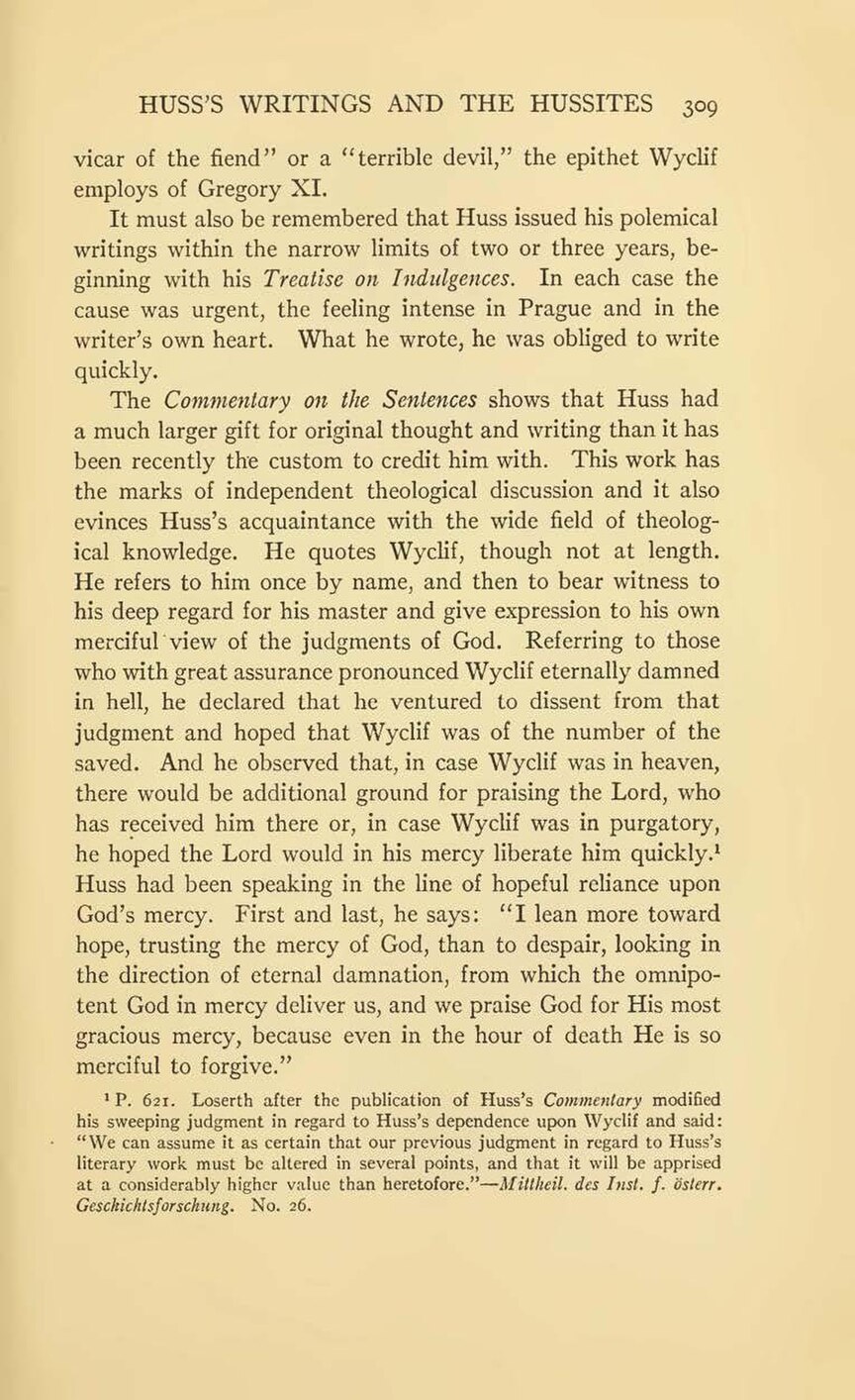vicar of the fiend” or a “terrible devil,” the epithet Wyclif employs of Gregory XI.
It must also be remembered that Huss issued his polemical writings within the narrow limits of two or three years, beginning with his Treatise on Indulgences. In each case the cause was urgent, the feeling intense in Prague and in the writer’s own heart. What he wrote, he was obliged to write quickly.
The Commentary on the Sentences shows that Huss had a much larger gift for original thought and writing than it has been recently the custom to credit him with. This work has the marks of independent theological discussion and it also evinces Huss’s acquaintance with the wide field of theological knowledge. He quotes Wyclif, though not at length. He refers to him once by name, and then to bear witness to his deep regard for his master and give expression to his own merciful view of the judgments of God. Referring to those who with great assurance pronounced Wyclif eternally damned in hell, he declared that he ventured to dissent from that judgment and hoped that Wyclif was of the number of the saved. And he observed that, in case Wyclif was in heaven, there would be additional ground for praising the Lord, who has received him there or, in case Wyclif was in purgatory, he hoped the Lord would in his mercy liberate him quickly.[1] Huss had been speaking in the line of hopeful reliance upon God’s mercy. First and last, he says: “I lean more toward hope, trusting the mercy of God, than to despair, looking in the direction of eternal damnation, from which the omnipotent God in mercy deliver us, and we praise God for His most gracious mercy, because even in the hour of death He is so merciful to forgive.”
- ↑ P. 621. Loserth after the publication of Huss’s Commentary modified his sweeping judgment in regard to Huss’s dependence upon Wyclif and said: “We can assume it as certain that our previous judgment in regard to Huss’s literary work must be altered in several points, and that it will be apprised at a considerably higher value than heretofore.”—Mittheil. des Inst. f. österr. Geschichtsforschung. No. 26.
